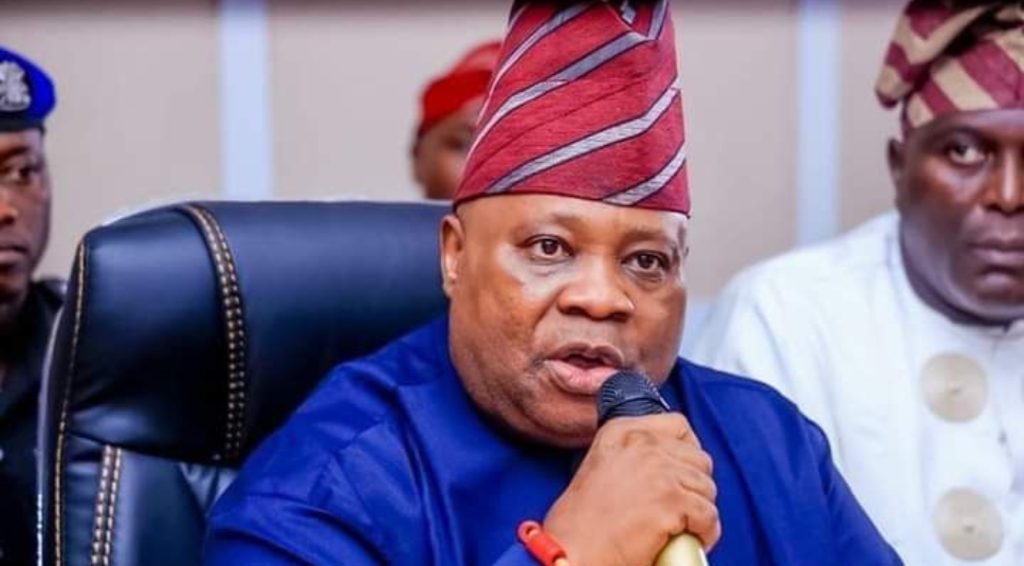The political landscape of Osun State is embroiled in a contentious power struggle between Governor Ademola Adeleke and the All Progressives Congress (APC) over the control of local government revenue collection. The dispute, stemming from conflicting claims to legitimacy, has escalated into a war of words and threats of arrest, raising concerns about potential unrest and disruption of public services. At the heart of the conflict lies the question of who rightfully holds the authority to oversee markets and collect associated revenues within the local government areas.
The genesis of the current impasse can be traced back to the February 2025 Appeal Court ruling in Akure, which reinstated the APC-elected local government chairmen and councillors who had been removed from office. Governor Adeleke, however, refuses to recognize their authority, insisting that the PDP chairmen and councillors elected in a subsequent election are the legitimate officeholders. This disagreement has led to a standoff, with both sides asserting their right to control local government affairs, particularly revenue collection from markets. The governor has accused the APC chairmen of illegal tax collection, forgery of council documents, and disregard for court processes, while the APC accuses the governor of unconstitutional actions and attempts to undermine the judiciary.
Governor Adeleke, through his spokesperson, has publicly directed the Osun State Commissioner of Police to halt what he terms “illegal tax collection” by the APC chairmen and investigate allegations of document forgery. He has specifically cited an instance in Boripe Local Government, where the APC chairman allegedly established a revenue task force, which Adeleke deems unlawful and disrespectful to the ongoing legal proceedings. Furthermore, he has tasked his Special Adviser on Security to collaborate with the police in enforcing these directives.
The APC, in a sharp rebuttal, maintains that its chairmen and councillors are acting within the bounds of the law and the Constitution, exercising their mandate to supervise markets as part of their legitimate duties. They have called upon the Inspector-General of Police to intervene and investigate the state government’s alleged plans to disrupt the activities of the reinstated council officials, accusing the governor of employing tactics such as using impersonators disguised as police officers to intimidate and harass them. The APC insists that the governor’s actions are motivated by a refusal to accept the court’s decision and a desire to usurp the constitutional authority of the local government.
The ongoing dispute has created a climate of uncertainty and tension in the state. Both sides have issued stern warnings, with the governor threatening legal action against those involved in what he considers illegal activities and the APC vowing to resist any attempts to infringe upon the constitutional rights and responsibilities of the reinstated local government officials. This escalating conflict underscores the fragility of the political landscape in Osun State and raises concerns about the potential for further unrest. The opposing claims to legitimacy and the threats of legal action create a volatile situation that could disrupt essential public services and undermine the rule of law.
The central issue revolves around the interpretation and implementation of the court ruling. While the APC contends that the Appeal Court’s decision unequivocally reinstates their elected officials, Governor Adeleke maintains that the matter remains sub judice, pending further legal proceedings. This differing interpretation has created a power vacuum, with both sides attempting to assert control over local government functions, particularly revenue collection. The public pronouncements and counter-accusations have further exacerbated the situation, fueling public anxiety and raising the specter of potential violence.
The resolution of this conflict hinges on a clear and unambiguous legal determination of the status of the reinstated local government officials. Until this issue is resolved, the potential for further escalation remains high. The involvement of law enforcement agencies, while necessary to maintain order, also carries the risk of exacerbating tensions if perceived as biased or partisan. A mediated dialogue between the governor and the APC leadership, facilitated by respected neutral parties, may be necessary to de-escalate the situation and find a path towards a peaceful resolution. Such a dialogue should focus on upholding the rule of law, respecting the authority of the judiciary, and ensuring the continued delivery of essential public services to the citizens of Osun State. The long-term stability and prosperity of the state depend on finding a legal and politically viable solution to this impasse.














